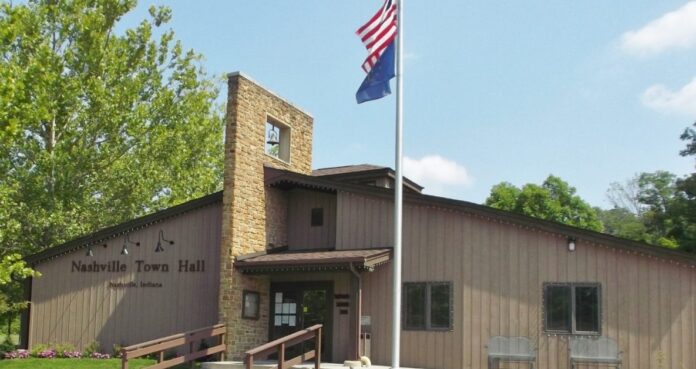Nashville utilities’ hook-on fees changing soon
It’s going to cost new customers a little more to hook onto water and sewer services from the town of Nashville because it’s costing the town more for the materials to do it.
The council had a first reading on two ordinances on Aug. 26 to amend its water connection and sewer connection fees. The ordinances haven’t passed yet; they will require a public hearing first.
The hearing is scheduled for Oct. 21 at 6:30 p.m. at Town Hall.
The reason the town is doing this is because currently it is losing money every time new hookups happen because the cost of materials has risen since the last ordinance was passed. For instance, the amount the town charges customers to install a new lift station for sewer now is $6,200, but the actual cost to the town is $6,600.
The Nashville Utility Service Board recommended that these ordinances be changed so that the town is not losing money.
The amended charges for a new sewer hook-on will be 2,200 for a gravity connection or $6,600 for a pressure connection/lift station. An administrative and review fee of $100 also will be charged.
The amended charges for a new water hook-on will be $1,400 for a 5/8-inch meter tap. If additional work is needed beyond that, a $200 charge will be added.
The draft ordinances are posted on the town’s website at townofnashville.org/town-council.
Town council discusses communication structure
The Nashville Town Council had an discussion at the Aug. 19 meeting about how to properly communicate with the town’s attorney, as there was confusion among members of the council about how he decides what he is supposed to work on.
Council member Nancy Crocker asked attorney James T. Roberts how he determines whether or not he’s going to do what a council person asks him to do. Roberts said he usually waits until he gets instructions from the council. Crocker then said that she’d asked him to look into the way the council appointed the newest member of the Brown County Board of Zoning Appeals, and he didn’t, and Roberts answered that it was a closed issue as far as he was concerned.
Roberts added that any lingering questions about the legality of the town’s appointment to the BZA were up to the BZA’s attorney to determine.
Council member Anna Hofstetter also asked Roberts if she needed to go through the council if she wanted him to draw up an ordinance about some subject.
Council President Jane Gore said that every single member of the council shouldn’t be going directly to Roberts and asking him to do things because he charges by the hour. The way it’s been done in the past is that requests have gone through the president, she said.
Crocker and Hofstetter both asked for more information on the process. Hofstetter mentioned that all council members have the same amount of power.
No one at the head table mentioned a meeting they had on Jan. 29, 2020, about this very subject. Gore was absent, Hofstetter missed part of it and council member Tyra Miller hadn’t been appointed yet, but Crocker, council member David Rudd and several town staff members were present for it. For more than an hour, Strategic Direction Adviser Dax Norton had talked with the group about how to communicate with each other — such as whether council members should email department heads and other staff individually or go through a group email or command process — and how they should communicate with members of the public.




